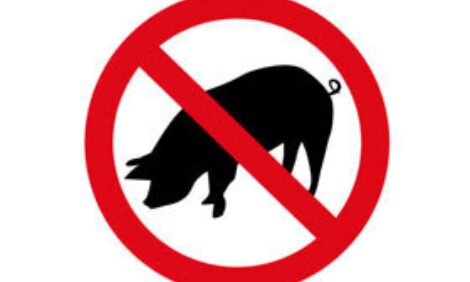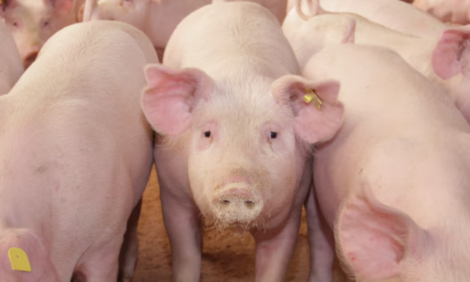



Threat of African Swine Fever Spread in Eastern Europe
FAO regional office in Budapest organised a high-level meeting about the threat of African Swine Fever spread in Eastern Europe in Budapest, Hungary in December 2012.African swine fever (ASF), a serious swine disease that has killed hundreds of thousands of pigs in the Russian Federation and the Caucasus, is seriously threatening to spread further to Eastern Europe and can cause severe losses to the whole European swine industry. In 2009-2012, overall losses due to the disease in Russia reached over US$1 billion. African swine fever is not a direct danger for human health nor does it threaten other animal species as it only affects pigs and wild boar.
However, it can also impact people’s livelihoods, food security and nutrition. There is no vaccine or treatment against this disease and almost all infected animals die after some days. Disease can be prevented through good husbandry practices and controlled through stamping out of the affected pigs and potentially affected pigs nearby. This requires compensation policies to ensure reporting and ease the hardship on pig owners.
African swine fever originates in Africa but was introduced into Georgia in 2007, from where it quickly spread throughout the Caucasus and into the Russian Federation. The disease spreads mainly through pork and pork products, where the virus can resist for long periods. If not prevented and controlled, ASF will easily spread to Europe with devastating economic consequences and serious trade restrictions to neighboring countries.
Chief Veterinary Officers and international experts came together in Budapest to discuss the threatening situation and find a common strategy to fight the disease. The meeting, entitled ‘’Threat of African Swine Fever spread in Eastern Europe: Urgent need for international collaboration’’, was organized by the Food and Agriculture Organization of the United Nations (FAO UN) under the aegis of the FAO/OIE Global Framework for Progressive Control of Transboundary Animal Diseases (GF-TADs). The event took place at FAO Regional Office for Europe and Central Asia in Budapest on 4 to 5 December 2012.
A total of 35 participants attended the meeting, representing 14 state veterinary services, international organizations such as the World Organisation for Animal Health (OIE), European Commission (EC), United States Department of Agriculture (USDA), International Council for Game and Wildlife Conservation (CIC),as well as international or EU/national reference laboratories and research institutions from Spain, Russian Federation, Poland, Italy and France.
Following a number of expert presentations on the epidemiological situation in Eastern Europe, representatives from participating countries presented their current situation, gaps and emergency preparedness plans. FAO also presented the results of a comprehensive study on ASF epidemiological and ecological features in the Russian Federation and the lessons that could be applied on disease control in Eastern Europe and elsewhere. The participants of the meeting discussed mechanisms to foster regional cooperation of the veterinary services and relevant international organizations for prevention and control of this devastating swine disease. They shared the urgency of regional cooperation and also recommended to make the general public more aware about the risk of transporting the disease through transport of pork products. A set of recommendations for better prevention and control of ASF was agreed by all participants.
Original source and papers available: FAO report - www.fao.org/europe/meetings-and-events-2012/asf/en/.






